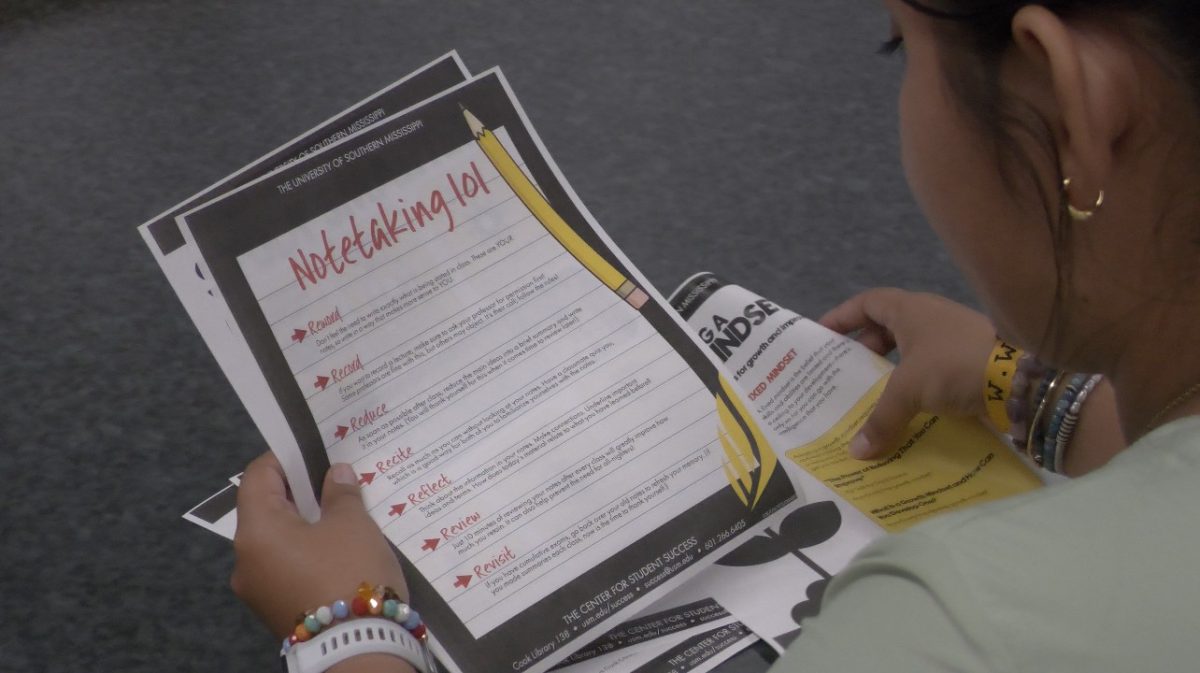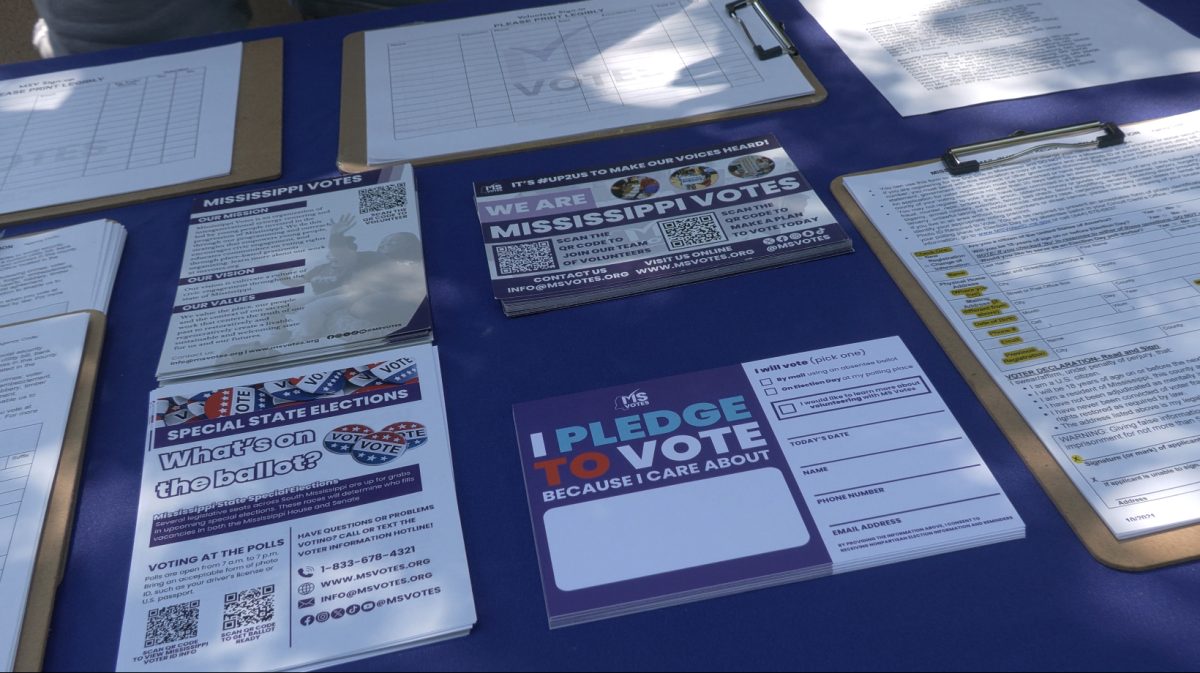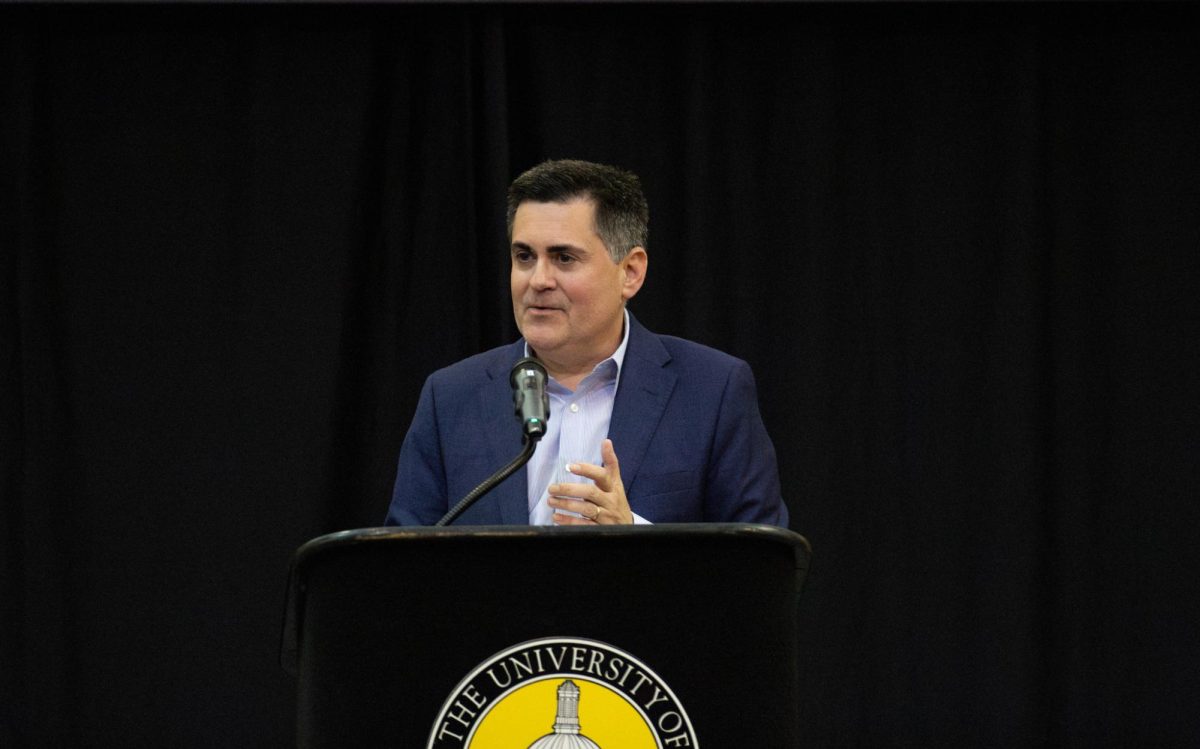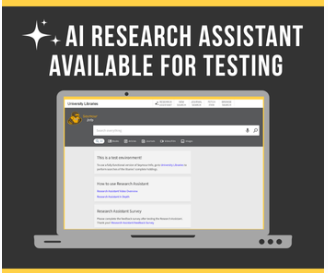As the use of Artificial Intelligence (AI) in academia continues to be a trending topic, Southern Miss Hosted a student panel to discuss students’ feelings regarding the use of AI in classrooms. The panel discussed different conversations around AI including the ethics of AI, use of AI in different majors, and the future of AI in academia.
The panel was moderated by Dr. Zach Taylor and featured five student speakers. The speakers were Logan Boudreaux, majoring in political science, Subhikshya Lama, double majoring in computer science and sociology, Dakota Owens,majoring Graphic Design, Reagan Veon, majoring in Marketing, and Alexa Tringali, a graduate student majoring in Psychology. The panel is a part in the series “AI Conversations: Ethics, Education, and Industry” hosted by AI Task Force to understand how Southern Miss can better utilize AI to facilitate all students.
“Technology historically has been for the very wealthy and the very elite,” Taylor explained the purpose of the series. “So the purpose is to help spread awareness with students and faculty so they are ready for the future in jobs and our society.
The panel started the discussion with students explaining how they use AI. Most students were pretty unanimous in using AI for helping them word their sentences a certain way and not relying on AI to do the job for them.
The panel was then asked when they first realized they were using AI. The speakers highlighted different points in their life ranging from gradual realization of Siri being more effective over time to an instant realization of their algorithm only showing certain content.
The speakers discussed heavier matters with reflections on how people use AI in academia. The students seemed to agree that some students are too dependent on AI and that has led to them not knowing the fundamental theories in their fields. The panel agreed that despite some majors requiring more AI than others, knowing the fundamentals is required to know when AI is wrong and to what extent it is right. The speakers also pointed out the lack of creativity that can be caused by relying too heavily on AI.
The speakers highlighted the detriment to knowledge and creativity that comes from using AI as a shortcut and not as a tool. The speakers also pointed out how a big part of being a researcher is finding gaps in current literature and that it is not something AI can do.
“I had a neuroscience class where my professor asked us to pick a broad topic and ask AI to find gaps in the literature that needs to be addressed,” Tringali said. “Then she told us to do the research and see if the gap actually exists or it has been covered already.”
The panel then discussed the ethics of using AI in classrooms. One big question raised by every speaker was when somebody’s work stops being their own and becomes plagiarization. While some students thought that having original ideas and using AI to generate that prompt should be the student’s own work, others argued that it is not their work unless they modify it in some way. The panel also discussed the impacts of heavy use of AI on climate change. They questioned if technology is a progress and if all progress can be considered good.
The panel then moved on to confusing aspects of using AI in classrooms. While professors are required to explicitly state they AI policy on the syllabus by university policies, some professors who are not as tech-savvy have given conflicting instructions. An example of that includes banning AI but encouraging the use of Grammarly, which is also an AI.
The panel then discussed the future of AI and how it would work ethically. While some students pointed out that AI can be used for discriminatory purposes like racial profiling, others hoped for better accessibility services for people who would need them. The panel then answered a few questions from the audience.
“AI Conversations: Ethics, Education, and Industry” is an ongoing series and has more events planned throughout the semester. Some upcoming events are AI in higher Education and AI Policies in USM.































